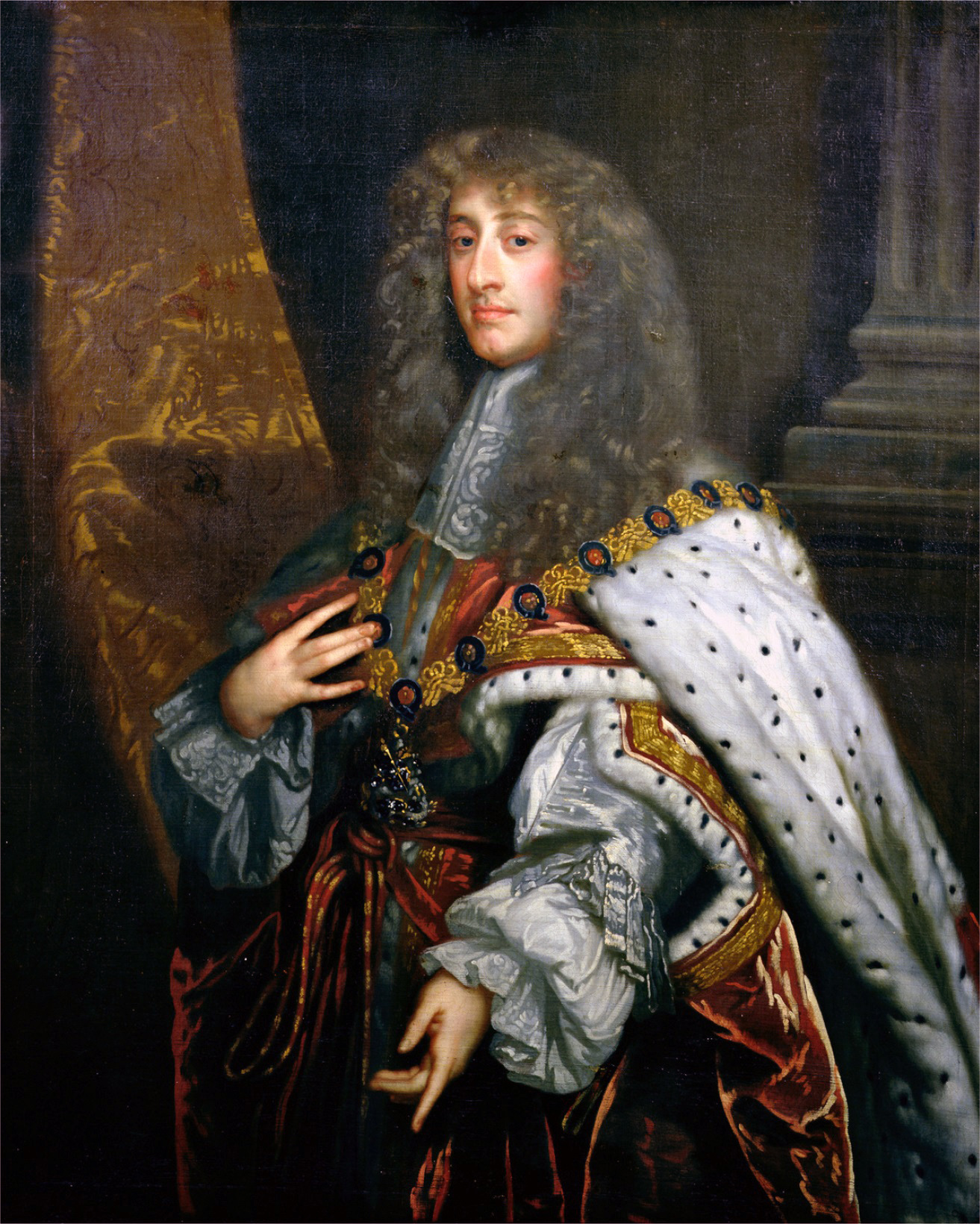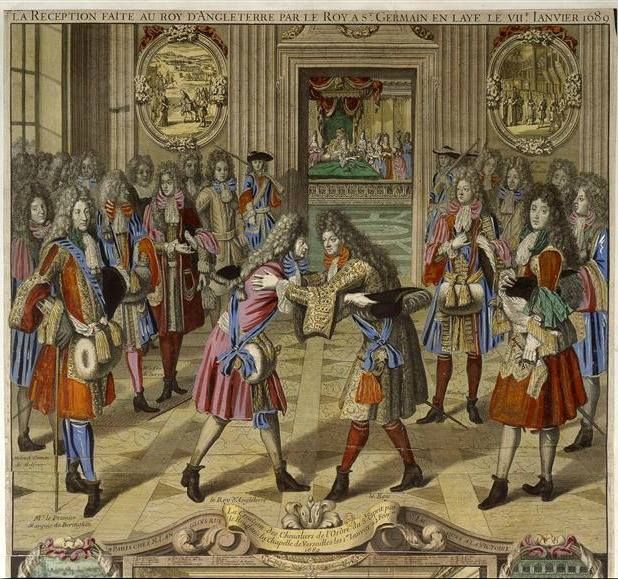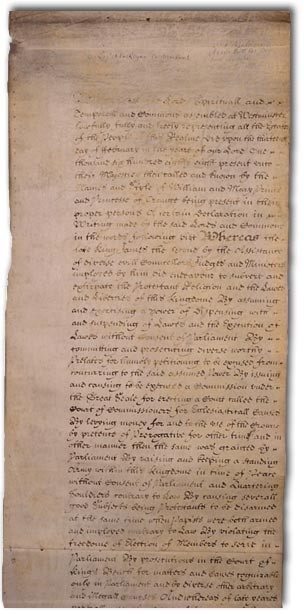Historical events
In 1685, a pivotal moment in English history unfolded as James II succeeded his brother Charles II to the throne. James II, unlike his Protestant predecessor, was a devout Catholic. His ascent to power ignited a wave of hope among Catholics for greater religious freedom and tolerance. However, this hope was met with apprehension and resistance from the Protestant majority, particularly within Parliament.

Portrait of James II, Public Domain
As James II began to assert his authority, tensions between the crown and Parliament escalated. Unlike his brother, James II sought to wield more centralized power, challenging the traditional balance between the monarchy and the legislative body. He amassed a standing army and appointed Catholics to key positions, raising concerns among the Protestant majority about the potential for religious persecution and the erosion of their rights.
The friction between James II and Parliament reached a boiling point in November 1685 when the king made the controversial decision to dissolve a session of Parliament. This move was perceived as a direct challenge to the authority and independence of the legislative body.
Ongoing call for change
As the years passed, the skepticism among Parliament members regarding James II’s policies and his consolidation of authority only deepened. The accumulation of power in the hands of the monarch and his decisions concerning religious matters fueled concerns about the erosion of fundamental freedoms.
The increasing unease within Parliament about James II’s actions spurred a call for decisive measures. In 1688, a coalition of English nobles extended an invitation to William of Orange, husband to James’s Protestant daughter Mary, to intervene in English affairs. This invitation marked a pivotal moment in the quest for liberty and laid the foundation for the events that would unfold during the Glorious Revolution.
Arriving in England in November 1688 with a formidable Dutch fleet and a combined force of Dutch and English troops, William of Orange represented the hopes of many Parliamentarians for a restoration of balance and the preservation of individual liberties. James II’s army, which had been expected to defend the king, instead defected to William’s side, and the king fled to France, effectively abdicating the throne, leading to a bloodless transition of power.

Louis XIV greeting the exiled James II in 1689, Public Domain
Consequences and the English Bill of Rights
Following the Glorious Revolution, England experienced profound political transformations that reshaped the relationship between the monarchy and Parliament. With the royal assent on December 16, 1689, Parliament’s influence on the monarchs became more pronounced, marking a significant shift towards a system where consent was paramount.
Central to these changes was the imposition of limits on the power of the monarchy. The establishment of free elections and the regular convening of Parliament became integral components of governance, ensuring that the voices of the people were heard and represented. Within this framework, members of Parliament were granted the freedom of speech, fostering an environment of open discourse and accountability.
The abolition of excessive fines and cruel or unusual punishments, as well as the prohibition of the suspension of laws without parliamentary consent, were key provisions of the English Bill of Rights. These measures were designed to safeguard individual liberties and prevent the abuse of power by the monarchy.

The English Bill of Rights, Public Domain
As a result of these reforms, conflicts between monarchs and Parliament dwindled, paving the way for a more harmonious relationship based on mutual respect and cooperation. The principles outlined in the English Bill of Rights not only affected the political landscape of England but also influenced the development of other constitutional documents, including the United States Bill of Rights, shaping the course of modern governance and individual freedoms.
Source: UK-Parliament